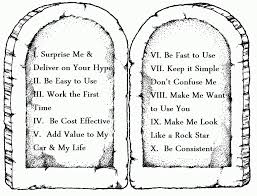Romans 4:1 – What then shall we say was gained by Abraham, our forefather according to the flesh?
Welcome back to our study of Romans. At the end of chapter three, Paul concludes that we are justified by faith, not according to the works of the law. 
To you and me, this is a normal, everyday statement which makes perfect sense. But to the Jews of Paul’s day, it was a bombshell which absolutely rocked their world! They were completely stunned and shaken up by this revelation.
Remember, even the Jews within the church had strong, lingering ties to their Jewish roots. From infancy, they had been taught that their adherence to the Jewish rites and laws were of the utmost importance; these were the things which separated them from all other nations, made them God’s special people, and guaranteed them entrance into God’s kingdom. It was quite a blow to them when they suddenly discovered that none of these works justified them in the sight of God.
So, take a moment and put yourself in the place of these early Jewish believers. Certainly, they were saved through faith in Christ, but just as certainly they had a residual belief that their works somehow played a part in their stance before God. If you were just firmly confronted with the unyielding truth that your works did nothing to merit your justification in God’s sight, what would your reaction be?
For many of the Jews their first reaction was disbelief. Their minds naturally searched for reasons why Paul’s arguments were false and should be abandoned. One of the first excuses they came up with was that the idea of justification by faith alone was not part of the holy scriptures (Old Testament), so it was not a concept that originated with God and therefore it should be cast aside as a false teaching.
However, as we saw in chapter three, Paul proved conclusively from the Old Testament writings that justification by faith was not new; it had been there all along. The Jews were just blind to its existence.
Habakkuk 2:4 - …the righteous shall live by his faith.
So, to further help them understand and grasp this truth, Paul will now prove his point by giving the Jews true-life examples or illustrations from two of their most revered ancestors – Father Abraham and King David.
Although Paul could have used any number of examples, the two he chose were very strategic. One of the top points of boasting for the Jew was that he or she was an offspring of Abraham, who was the father of the Jewish faith.
If Paul could prove that Abraham, a man so famous for works, so eminent in holiness and so consistent in obedience, was justified by faith, then what argument was left to the common Jew? To claim that they could be justified by works would be to claim that they were superior to Abraham in every way, and no Jew would dare say that!
The case of David was also very compelling. What Jew did not revere and honor their greatest king, a man after God’s own heart? If David affirmed that works did not earn justification in God’s sight, the Jews would be forced to admit that Paul was correct.
Deuteronomy 19:15 - One witness shall not rise up against a man for any iniquity, or for any sin, in any sin that he sins: at the mouth of two witnesses, or at the mouth of three witnesses, shall the matter be established.
Before we move on to look at these two examples, let’s just take a moment to address the reasons why this concept was so important to the early church. 
First, as we already mentioned, the Christian Jews in the Roman church were true believers, yet they had lingering assumptions that works also played a part in their salvation. It was important for this false idea to be rooted out of the church in its early stages.
Secondly, for every Jewish believer in the church, there were many more Jews who did not accept Christ as the Messiah. Without a doubt, every Jewish Christian had members of their own family who had disowned them for ‘abandoning’ their Jewish faith. These Christians needed to understand the full argument for justification by faith so they could impart this truth to others, when given the chance. They needed to be able to defend their Christian beliefs.
Third, because the early Christians were ostracized by their fellow Jews, they needed full assurance in their hearts and minds that they were truly justified in God’s sight. (The Jews had very strong family ties. Imagine how awful it would be to be disowned by your family because you were a Christian.)
Finally, in the early church it was common for the Jews to consider the Gentiles as a kind of ‘second class citizen’ in the kingdom of God. This viewpoint was the result of their national identity, which was centered on works. In order for the Jews to realize that everyone in the church was an equal child of God, they needed to understand that acceptance rested on God’s grace alone, not on works.
DIGGING DEEPER: What then shall we say: In other words, in the case of faith verses works, what can we conclude based on the testimony of Abraham?
Abraham our forefather: As you well know, Abraham was considered the father of the Jewish nation and rightly so, for he was called to that role by God himself:
Genesis 12:1-2 - Now the LORD had said unto Abram, Get you out of your country, and from your kindred, and from your father's house, unto a land that I will show you: and I will make of you a great nation, and I will bless you, and make your name great; and you shall be a blessing:
Abraham was revered by the Jews not only as the head of the nation, but as the one to whom the rite of circumcision was given (Genesis 17:9-11). The Jews considered it an honor to be his descendants. In fact, they regularly boasted about being the children of Abraham (Matthew 3:9, Luke 3:8, John 8:39, Acts 13:26, etc.).
As the most revered patriarch of the nation, any argument drawn from his example would have been very forceful in the minds of the Jews. Because Abraham is also the father of the Gentiles (many nations – Genesis 17:4-5), his example was also very important and influential in the thinking of the Gentile believers.
So, we find that Paul uses the example of Abraham as a pattern of righteousness which is common to the whole church. If he was pardoned by faith, then his offspring, both Jew and Gentile should expect the same.
According to the flesh: What is Paul referring to when he uses the word ‘flesh’? 
Some bible commentators believe he is speaking specifically about circumcision, while others believe he is talking about natural earthly strength and wisdom. Still others believe he is talking about obedience to the law or works. Based on the current topic, the third answer would be most likely, although all three could be correct.
What has Abraham found: By asking this question, Paul invites the reader to consider what they know about Abraham and discern for themselves how he was justified in God’s sight.
Paul’s question might be rephrased this way: What did Abraham discover about being justified in God’s sight? Did it come from being circumcised, or through his own strength/wisdom or by obedience/adherence to the law (works)?
The apostle is confident that after examining the facts, the unbiased reader will admit that their most beloved ancestor was not justified by any of these things, but exclusively by faith.
It stands to reason that if that was the case for Abraham, then his offspring will need to be justified in the same manner – by faith alone.
Romans 4:2 – For if Abraham was justified by works, he has something to boast about, but not before God.
GENERAL SUMMARY: However high and honorable Abraham was in the mind of the Jews (mankind), in the eyes of God he was nothing more than a sinner.
DIGGING DEEPER: If Abraham was justified by works, he has something to boast about:
In the minds of the Jews, Abraham had some basis for boasting. By all human accounts, he lived a pious life of obedience and service to God. His devotion to God was so great, he was willing to offer his beloved son Isaac as a sacrifice to God (Genesis 22). He was the one who entered into the initial covenant with God (Genesis 15); he was the one who received the rite of circumcision as a sign of that agreement (Genesis 17). There is no doubt he was supernaturally blessed by God.
So honestly, maybe he did have reasons to boast - with respect to other people. Maybe he was the most righteous man of his generation. Maybe he was the most obedient and the most faithful and the most humble. But even then, he had no basis for boasting in God’s sight.
But not before God: Regardless of what mankind thought of Abraham, God (who knows/sees all things, even the hidden things of the heart) knew that Abraham was a sinner just like every other human being. As a sinner in God’s sight, he was under the same curse of the law, and the same sentence of spiritual death as everyone else.
In other words, all of Abraham’s works and obedience and faithfulness were not enough to justify him in the sight of God and therefore, he had no reason to boast.
The reverse is also true - if Abraham had no grounds for boasting, then he was not justified by his works (or by his own strength/wisdom or by circumcision).
So, if Abraham was justified in the sight of God, and that justification was not the result of works, on what basis was he justified?
Answer: Abraham was justified by faith.
Romans 4:3 – For what does the Scripture say? “Abraham believed God and it was counted to him as righteousness.”
GENERAL SUMMARY: Paul will show that scripture, the ultimate source of all truth, testifies that Abraham was justified (counted as righteous) in God’s sight through faith.
DIGGING DEEPER: What does Scripture say: In any discussion, it is essential to have some common ground on which a debate can be launched. 
For example, if we were discussing whether cats or dogs make better pets, we might start with the common belief that all pets are beneficial.
Since Paul and his fellow Jews were in complete agreement that the Scriptures were the divine source of all truth, they were not only common starting ground for discussion, they could also be used as the final authority in all earthly matters. Given this, it’s not surprising that Paul used the scriptures to prove his assertion that Abraham was justified by faith and not by works:
Genesis 15:6 – And he [Abraham] believed the Lord, and he counted it to him as righteousness.
Abraham believed God: In Genesis chapters 12, 13, and 15 God makes a number of promises to Abraham. In chapter 15, God specifically promises that he will be Abraham’s shield and great reward (Genesis 15:1). God also promises that he will give Abraham an heir from his own body (Genesis 15:4), that he would multiply Abraham’s descendants (Genesis 15:5) and that all nations of the world (Jew and Gentile) would be blessed through his seed/offspring. This last promise is extremely important.
We know that when God promised to bless the entire world through Abraham’s seed, he was referring to Jesus Christ, the Messiah of the world, who was born through the natural lineage of Abraham.
Galatians 3:16 – Now the promises were made to Abraham and to his offspring. It does not say, “And to offsprings,” referring to many, but referring to one, “and to your offspring,” who is Christ.
The purpose of the Messiah’s coming was to atone for our sin on the cross and thus provide the way for us to be justified in the sight of God.
The key point is this – when Abraham believed God, he was embracing, or placing his faith, in the fact that God was going to send a Messiah into the world to justify sinners in his sight. He may or may not have known that Jesus was that Messiah, but he definitely understood that a Messiah was coming.
Galatians 3:8 – And the Scripture, foreseeing that God would justify the Gentiles by faith, preached the gospel beforehand to Abraham, saying, “In you shall all the nations be blessed.”
Because of Abraham’s belief (the exercise of his faith), in this promise, God treated him as a righteous or justified man.
The Jamieson-Fausset-Brown Bible Commentary puts it this way: “… Abraham believed in the promises which embraced Christ, just as we believe in Christ himself; and in both cases, faith is the instrument or means by which we receive the righteousness of Christ and are thus justified before God.”
We might also phrase it this way: Abraham’s faith in the promises of God included the promise concerning the Messiah, so by believing God, he was also believing in the coming of the Savior, who would justify mankind by faith, not by works.
There can be no doubt that Abraham understood and believed in the Messiah, because Jesus himself tells us it was so:
John 8:56 – Your father Abraham rejoiced that he would see my [Jesus’] day. He saw it and was glad.
Based on the divine authority of scripture, the only conclusion that can be reached is that the righteousness of Abraham was not earned by his works; it was imputed or attributed to him through his faith in the Messiah. Therefore, he had no basis for boasting.
This was a wake-up call for the Jews. If their most revered ancestor was not justified by works but by faith in the righteousness of the coming Messiah, they must seek to be justified in the same way.
Romans 4:4 – Now to the one who works, his wages are not counted as a gift but as his due.
GENERAL SUMMARY: Paul now proceeds to state his case in another way. He uses the analogy of human work to help explain his point.
When you work, your employer is legally bound to give you what you have earned, whether they want to or not. Gifts are a different matter. The giver has full control of the gift. They are not under any obligation to even give a gift, but if they decide to, they determine what to give, when to give it, how much to give, and who to give it to.
Here is the parallel: If mankind were justified by works, God would be under an obligation to mankind. He would owe us justification whether he wanted to give it to us or not. Fortunately, that can never be the case. Justification is a gift from God to us; he is in full control of it. 
DIGGING DEEPER: To the one who works: We are all familiar with work. In the employee/employer relationship, there is a legal obligation for the company to pay you the wages you were promised for any work you performed. If they don’t pay you, you can take legal action against them.
In the spiritual realm, the ‘one who works’ is a person who strives to keep the laws and commands of God with the intention of earning justification through the work he or she has done.
His wages: That which is earned; in this case justification and/or righteousness in God’s sight.
Are not a gift, but his due: If, by some chance, there was a person who perfectly kept the laws and commands of God, then God would be under an obligation to give them what they “earned” – justification/righteousness.
The justification they received would come on the basis of wages – something earned by the worker. Since the person worked for what they are receiving, it is not a gift – it is their due. In this scenario, God would be under an obligation to justify them in his sight.
Now let’s apply this principle to the subject at hand. If Abraham had been justified by his works, the justification he received would have been a payment of what God owed him. If that was the case, then his belief in God’s promises would have had absolutely no part in his justification, and his faith would have been useless.
But that was not the case. The righteousness attributed to Abraham was an act of grace (a gift) on the part of God.
Simply stated, grace and works are opposites. If you earn salvation through works, then it can’t be on the basis of grace. On the other hand, if you receive the gift of grace, then it is not something owed to you for works.
Just to be clear, Paul is expressing a general truth in regard to works. He is NOT confirming that anyone has actually ever received salvation by conformity to the law and thus saved by their own merits. He made that perfectly clear in Romans 1-2.
Let me offer you some encouragement and some relief:
As human beings, we often forgive imperfectly. What I mean is this: We say we forgive the person who offended or hurt us, but we treat them like we are still angry with them.
Have you ever forgiven a friend, but then turned around and ignored them for a couple of days just to show them how displeased you were?
Has your spouse ever expressed forgiveness for a comment you made, but then kept reminding you of your mistake over and over (sometimes in front of other people)?
You get the picture – we forgive, but we still treat the offender differently than we did before.
So let me give you some encouragement and relief – God isn’t like us at all!
When God forgives us, it means full and complete reconciliation. Scripture says that God casts our sins into the depths of the sea (Micah 7:18-19) which means he doesn’t remember them against us anymore.
God delights in mercy; once we are forgiven, he treats us as if we had never sinned in the first place. He does not continually remind us of our failures or give us the ‘cold shoulder’ for a season.
If you are hearing about your past mistakes over and over again, that is coming from the enemy not your heavenly Father. So, tell him to ‘get lost’ and begin to rejoice in the complete forgiveness God has given you.
Let me offer you some strength:
Today’s study is focused on receiving justification in God’s sight by faith. But let’s take a broader view for a moment: ALL of God’s promises are received that way.
What promises are you trying to receive from God? Are you looking for healing, or for restoration of a relationship, or a breakthrough in your ministry?
Whatever the case may be, you will need to grasp that promise by faith and allow it to take root in your mind and heart before you see it come to pass.
Search the scriptures to find out what God has promised to you in the covenant. Then, meditate on these scriptures, mulling them over in your mind. Read them over many times. Think about them when you are going to sleep. Quote them to yourself (speak them out loud). Pray them over yourself. Allow your eye of faith to see them coming to pass in your life.
No matter how long it takes, don’t give up! Faith is always rewarded; at the proper time, God will honor his promise!










 (both Jews and Greeks/Gentiles) is essentially wicked. He is mainly pointing this out for the benefit of the Jews. They were more than happy to admit that the Gentiles were wicked, but they erroneously believed that they were justified in God’s sight because they were his people.
(both Jews and Greeks/Gentiles) is essentially wicked. He is mainly pointing this out for the benefit of the Jews. They were more than happy to admit that the Gentiles were wicked, but they erroneously believed that they were justified in God’s sight because they were his people. 

 sight by keeping the law, Paul now offers a solution to the problem – justification apart from the law; justification by faith through the imparted righteousness of Jesus Christ.
sight by keeping the law, Paul now offers a solution to the problem – justification apart from the law; justification by faith through the imparted righteousness of Jesus Christ.  sight. Those who face that realization will instantly be convicted of their sin. They will repent and eagerly embrace the sacrifice of Christ which leads to salvation.
sight. Those who face that realization will instantly be convicted of their sin. They will repent and eagerly embrace the sacrifice of Christ which leads to salvation. 


















